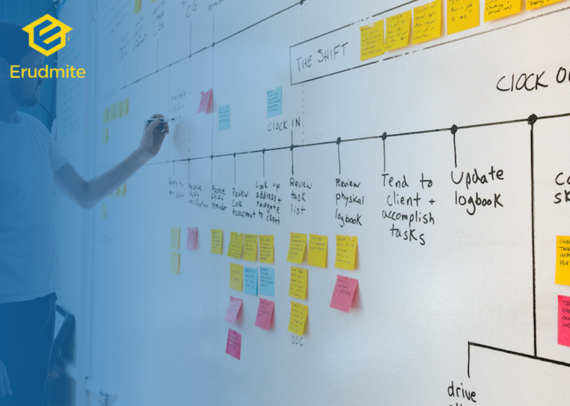
Introduction: Why Online Learning Keeps Evolving
When online courses first appeared, they were little more than digitised textbooks and pre-recorded lectures. Fast forward to 2025, and online learning has become an entire ecosystem flexible, interactive, and deeply tied to global career needs.
For students in Dubai and across the world, understanding the latest trends in online education is not just optional. It helps you choose the right platforms, balance online with on-campus learning, and make smarter career decisions.
Here are the global shifts reshaping online learning that you need to know.
1. Microlearning Becomes Mainstream
Students and professionals no longer have hours to spare for generic online modules. Instead, short, focused bursts of learning are now in demand.
- Courses designed in 10–15 minute modules.
- Mobile-first platforms delivering lessons during commutes.
- Certifications that build gradually instead of requiring large upfront commitments.
This bite-sized approach is especially popular in fast-changing industries like IT, marketing, and healthcare.
2. AI-Powered Personalisation
Artificial intelligence is transforming how students learn. Modern platforms don’t just deliver the same material to everyone — they adapt content based on your pace, strengths, and weaknesses.
For example:
- An AI tutor slows down when you struggle with statistics, offering extra exercises.
- It speeds ahead when you master a concept quickly.
- It even recommends related courses based on your career goals.
This is where Parlo, a London-born AI-powered platform, stands out. Unlike generic apps, Parlo focuses specifically on spoken English as a career skill — personalising lessons to your fluency level and even tailoring exercises to industry needs. For UAE students preparing to study in the UK or other destinations, this ensures they don’t just know English, but can use it confidently in professional contexts such as interviews, presentations, and networking.
AI is no longer abstract; platforms like Parlo show how it can solve real barriers that hold students back.
3. Project-Based Online Courses
The shift from theory to practice is evident online as well. Platforms now design courses around projects and portfolios rather than multiple-choice exams.
- Coding courses that end with live apps on GitHub.
- Business courses requiring students to pitch real strategies.
- Creative courses graded by peer review of actual designs.
Employers value this shift because it produces tangible evidence of competence.
4. Growth of Industry-Specific Platforms
Generalist platforms are giving way to niche players. For instance:
- Coursera and Udacity dominate IT and data science.
- FutureLearn has a strong healthcare focus.
- Domestika and Skillshare cater to creatives.
- Parlo is purpose-built for communication, specialising in making spoken English career-ready.
This means students can now choose platforms based not just on price or size, but on their career sector.
5. Blended Learning Takes Centre Stage
Hybrid education is here to stay. Many universities now combine online modules with on-campus experiences.
For example, a student at UWS London might take part of their course content online — recorded lectures, interactive quizzes — while still benefiting from in-person group projects, networking, and mentorship.
This model maximises flexibility without losing the depth of face-to-face learning.
6. Social Learning and Peer Communities
Online learning has often been criticised as lonely. Platforms are fixing this by embedding social features:
- Discussion boards with global peers.
- Peer-review assignments.
- Live sessions with instructors and classmates.
Learning no longer happens in isolation. Students gain global perspectives by interacting with peers in different countries.
7. Recognition of Online Credentials by Employers
In the past, online courses were sometimes dismissed as “less serious.” Not anymore.
- Recruiters now actively look for LinkedIn Learning badges, Coursera certifications, and Google/AWS Nanodegrees.
- In Dubai and the wider GCC, HR teams recognise these as proof of continuous upskilling.
- Some companies even reimburse employees for completing respected online programmes.
The stigma has lifted — and online certifications now add weight to a CV.
8. Corporate Partnerships with Online Platforms
Global companies are working directly with platforms to train future employees.
- Google collaborates with Coursera for IT certificates.
- Amazon Web Services partners with Udacity for cloud programmes.
- Luxury and hospitality groups engage with Glion and Les Roches for branding and service courses.
For students, this means online courses are no longer abstract — they are pipelines into real industries.
9. Accessibility and Affordability
The democratisation of education is accelerating. Free and low-cost options mean a motivated learner anywhere in the world can access knowledge that was once restricted to elite universities.
This is particularly impactful in regions where access to quality higher education is limited. For UAE students, it means you can supplement your degree with certifications at a fraction of the cost.
10. Lifelong Learning Becomes the Norm
Finally, the biggest shift is mindset. Education is no longer a phase of life — it’s a lifelong journey.
Employers expect professionals to constantly upskill. Platforms make this possible by offering flexible, affordable ways to keep learning even while working full-time.
The UAE and UK Perspective
For students in the UAE, these global trends matter deeply:
- The UAE job market increasingly demands hybrid professionals — those who combine formal degrees with online micro-credentials.
- Employers look for evidence of adaptability, and online certifications demonstrate exactly that.
- UK universities like UWS London encourage students to integrate online learning into their academic journey, making graduates more competitive globally.
For example:
- A student in MBA Luxury Brand Management might supplement with a Domestika course in digital marketing.
- A BEng Cyber Security student could add an Udacity Nanodegree in cloud security.
- Someone studying MSc IT with Financial Technologies could gain extra skills via CFA Institute’s online modules.
- A student using Parlo alongside their degree demonstrates communication excellence, something employers in both Dubai and London value highly.
This is why more Dubai students are now seeking career counselling in Dubai or student career planning Dubai sessions before choosing their study path. The smartest approach blends study abroad programs in the UK with selective online certifications, ensuring a strong return on investment.
Erudmite’s Perspective
At Erudmite, we help students cut through the noise of online platforms and make strategic decisions. As one of the best education consultants in Dubai, we provide one-on-one education counselling, guide students through UK university admissions, and even help them explore how to apply for UK universities with scholarships and bursaries.
Whether you’re looking for study abroad consultants in Dubai to support your UK journey, or international education advisors to align your long-term career goals, our approach is simple: clarity, strategy, and personalisation.
We position online learning as a complement, not a substitute. A UK degree is still the foundation — but when paired with targeted platforms like Parlo, Coursera, or FutureLearn, it creates a profile that employers recognise instantly.
Conclusion:
The online learning landscape in 2025 is vibrant, innovative, and deeply tied to careers. But choice matters. The right course can give you a competitive edge, while the wrong one can waste your time.
Students should:
- Pick industry-relevant platforms.
- Focus on project-based, portfolio-driven outcomes.
- Blend online learning with recognised university degrees.
For UAE students, the smartest step is to seek guidance early from education consultants for UK, from student visa consultants in Dubai, and from advisors who understand both the UK education system and the global job market.
The future belongs to learners who are adaptable, curious, and proactive. If you’re in Dubai and considering a UK degree, pairing it with global online learning trends — and platforms like Parlo — could be your smartest career move yet.
FAQs
1. Are online courses respected by employers in the UAE?
Yes. Recruiters now actively look for LinkedIn Learning, Coursera, Udacity, and other certifications.
2. What is microlearning and why is it popular?
Microlearning delivers short, focused lessons (10–15 minutes) that fit into busy schedules, making it easier to learn consistently.
3. Can online learning replace a full degree?
No. Online courses are excellent supplements but don’t replace the recognition and networks of a formal university degree.
4. Which platforms are best for UAE students?
Coursera, Udacity, FutureLearn, Parlo, and LinkedIn Learning, depending on industry focus.
5. How does Erudmite help students leverage online learning?
By providing career counselling in Dubai, offering UK student visa guidance, and helping students align study in UK with scholarship opportunities to make the most of their investment.






